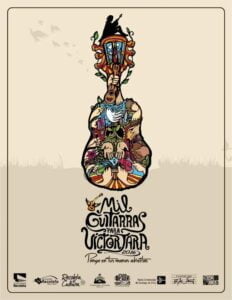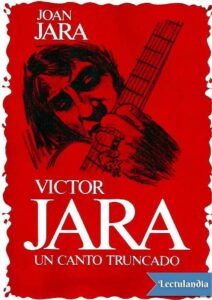Come join us now, and enjoy playing your beloved music and browse through great scores of every level and styles!
Can’t find the songbook you’re looking for? Please, email us at: sheetmusiclibrarypdf@gmail.com We’d like to help you!
Table of Contents
Víctor Jara (1932-1973)
Mi canto es una cadena sin comienzo ni final
My song is a chain without beginning or end
Victor Jara – El Derecho de Vivir en Paz (Full album) The right to live in peace
Please, subscribe to our Sheet Music Library.
If you are already a subscriber, please, check our NEW SCORES’ page every month for new sheet music. THANK YOU!
Track list Victor Jara – El Derecho de Vivir en Paz
00:00 El Derecho de Vivir en Paz 04:35 Abre la Ventana 08:30 La Partida 11:56 El Niño Yuntero 15:41 Vamos por Ancho Camino 18:59 A la Molina No Voy Más 22:11 A Cuba 26:11 Las Casitas del Barrio Alto 28:41 El Alma Llena de Banderas 32:41 Ni Chicha Ni Limoná 36:04 Plegaria a un Labrador 39:20 Brigada Ramona Parra 42:35 Oíga Pues Mijita 45:19 Muchacha del Telar 47:44 Venían del Desierto 50:45 Poema 15 54:15 Danza de los Niños
Víctor Jara – Biography
Of peasant origin, the son of a tenant and a popular singer, Víctor Jara would become one of the main references of Chilean music and a living testimony of popular artistic creation.

After wandering through Chillán Viejo and Lonquén, in 1944 he arrived in Santiago with his family. His youth was marked by his accounting studies, his admission to the Seminary of the Order of the Redeemers of San Bernardo and his fulfillment of compulsory military service. He joined the choir of the University of Chile in 1953, at which time he formally began his foray into music that had already been motivated by the work of interpretation and folkloric compilation of his mother, Amanda Martínez.
However, his first academic choice was theater. He studied, between 1959 and 1961, acting and directing at the Theater School of the University of Chile. Throughout the 1960s he established himself as one of the best directors on the Chilean scene, obtaining numerous awards and recognition from the public and specialized critics. He was thus one of the most important theater directors of his time.
At the same time, his work in popular music was built from his participation in the Cuncumén group, with which he worked between 1957 and 1962. His musical creation tended to rescue popular tradition and the social demands of the classes. dispossessed of the country. Within this framework, he was artistic director of the Quilapayún ensemble (between 1966 and 1969), collaborated with the Inti Illimani ensemble, and was a stable number of the renowned Peña de los Parra.
He had a fruitful career as a soloist and composer. His discography is one of the richest and most interesting of his time. In 1969 he won the First Festival of the New Chilean Song, with his composition ‘Plegaria a un labrador’, which he performed accompanied by the Quilapayún ensemble. Thus, he became one of the main symbols of this musical movement.
Best Sheet Music download from our Library.
Since 1970 he assumed a strong political commitment, actively participating in the electoral campaigns of the Popular Unity and in the government of Salvador Allende. In 1971 he joined the stable artists of the Vice-Rector’s Office for Extension and Communications of the State Technical University. On September 11, 1973, he went to carry out his work at said university, where he was taken prisoner by troops of the Chilean Army, being brutally tortured and assassinated in the Chile Stadium. Today, that stadium is named after him.

Víctor Jara recorded his first albums with the Cuncumén ensemble, between 1957 and 1962. That incursion, group experience and systematic musical research and interpretation, encouraged him to develop his solo career that began with his first single album, released by the Demon label. in 1965, which contained the songs ‘La cocinarita’ and ‘El cigarrito’.
His first full-length album, self-titled, was released by the Arena label in 1966, from which time seven albums would be released, until his death. The last album that Víctor was able to listen to was Canto por travesura (1973), a compilation of folk songs where the author resumed his work as a researcher that, in part, had been overtaken by the political contingency. After his death, his songs have been released in countless compilations and reissues.
His artistic creativity led him to bring together in the same musical expression, elements such as the romantic song, the protest song, rock and folklore. Emotional songs like ‘I remember you Amanda’ join psychedelic airs like ‘The right to live in peace’ and ‘Open the window’ (tracks recorded with the collaboration of Los Blops), songs with clear political content like ‘Móvil Oil Special’ , or folkloric songs such as ‘Despedimento del angelito’ or ‘Ay mi palomita’, constituting one of the richest, most profound, innovative and significant musical works in the history of Chile.
